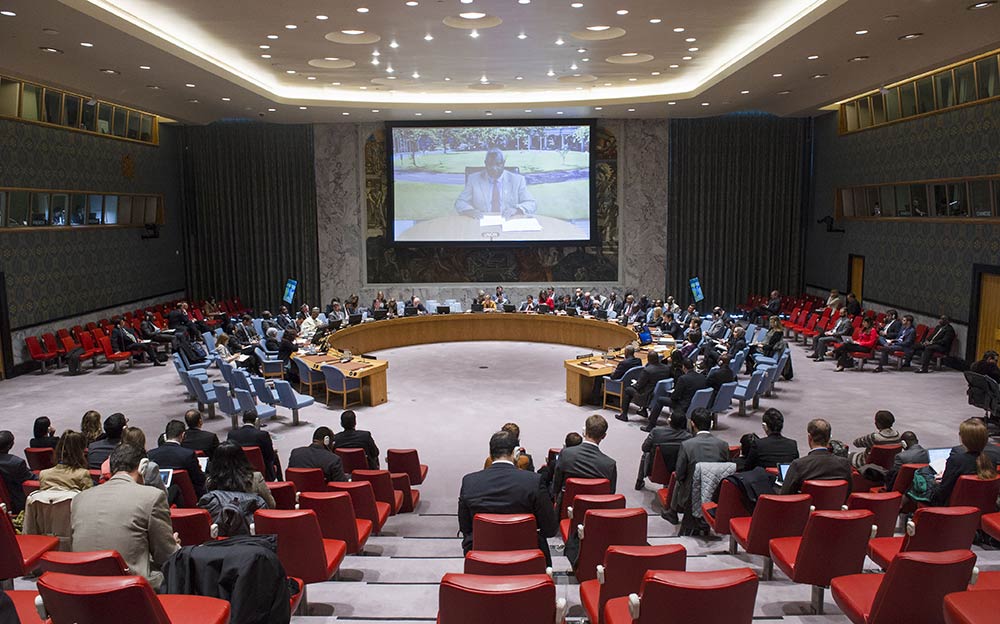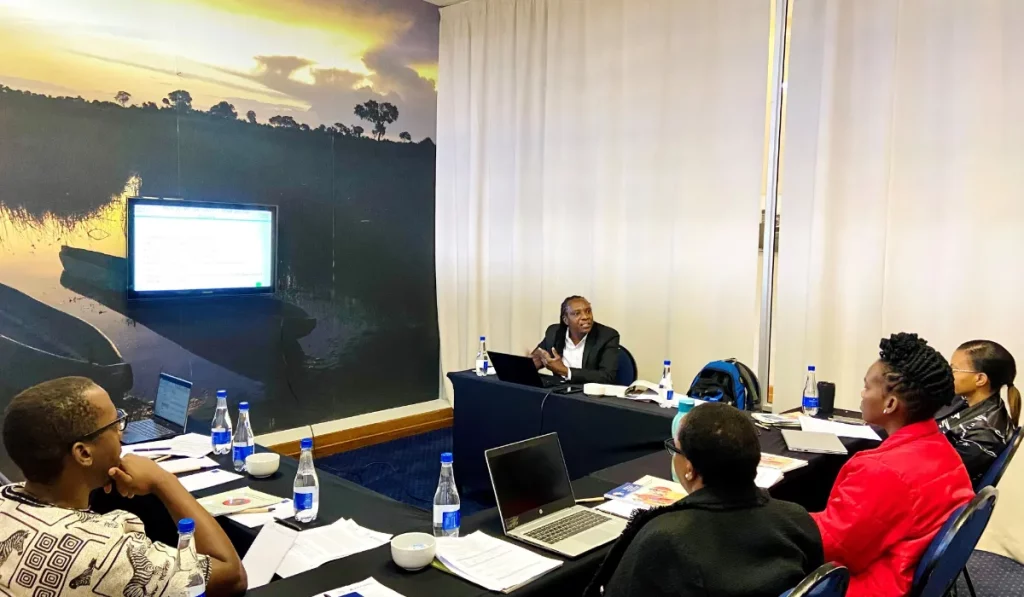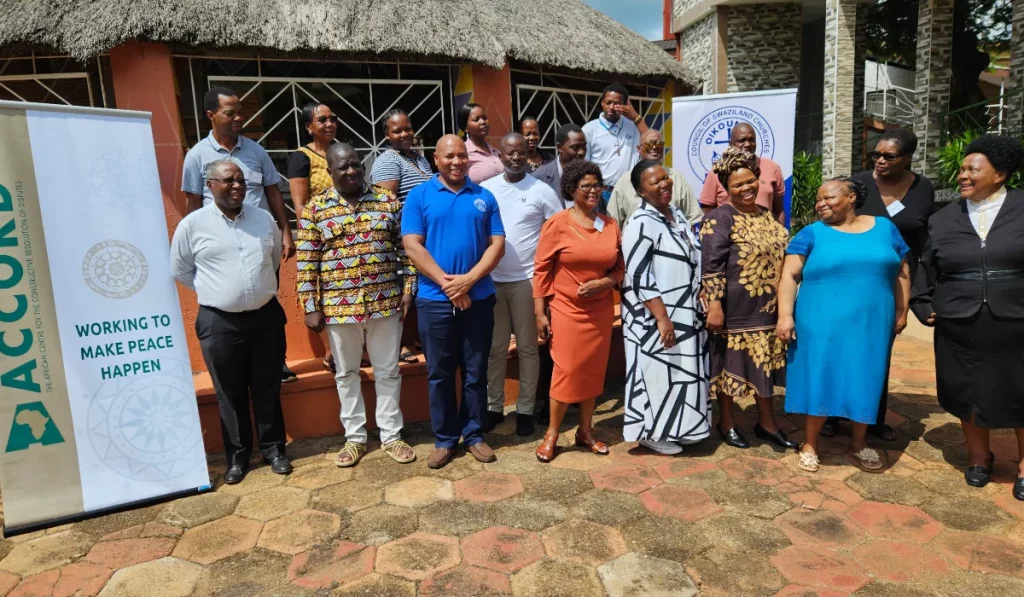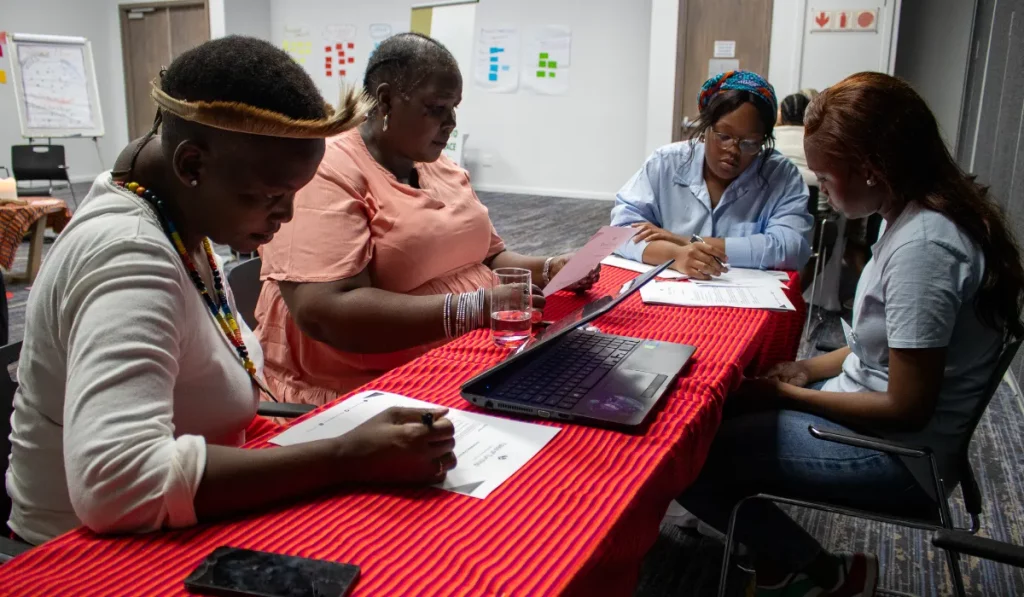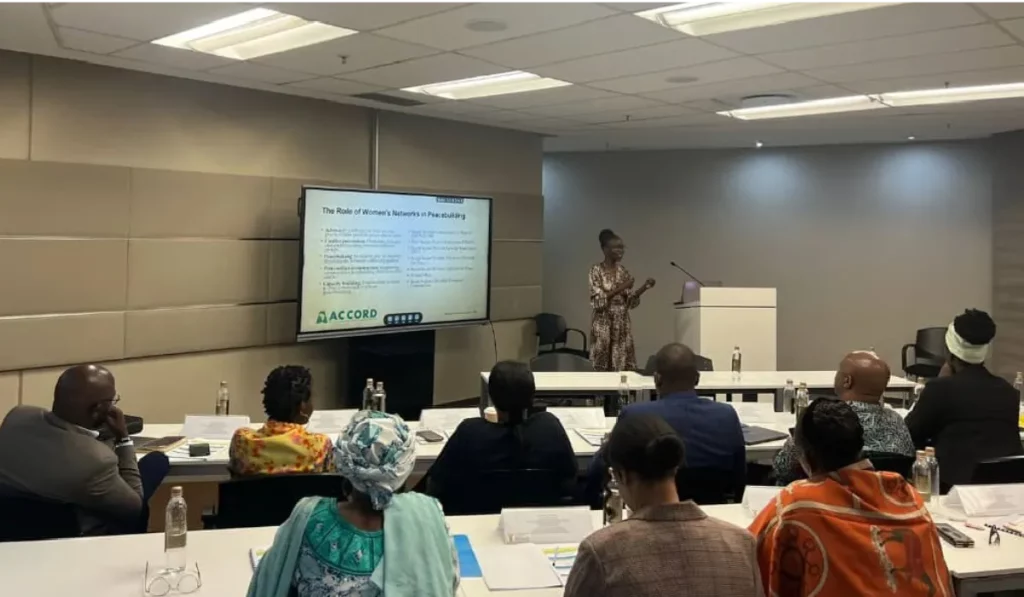In June 2015, the African Union Commission (AUC), and Regional Economic Communities (RECs), and Regional Mechanisms (RMs) finalised and subsequently launched the African Standby Capacity (ASC) roster which marked an important milestone in support of AU peace operations. This paved way for the AU, RECs and RMs to populate the roster with the required civilian capacities for Peace Support Operations. Additionally, the AUC offered to support the regions by providing further technical assistance and capacity building to the regional Rostering Focal Points through training, to ensure effective and efficient operations of the roster. The AUC in collaboration with the ACCORD/TfP met with the Economic Community of Central African States (ECCAS) Civilian Planning Element from 16 – 20 November 2015 in Libreville, Gabon. This was a follow up and coordination meeting, to provide technical assistance through coaching and coordination.
In light of the above, close coordination and cooperation between the AU and the RECs/RMs, in this case ECCAS, is important for the operational capability of the African Standby Force (ASF). Therefore, from the civilian perspective, the ASC roster as a key aspect of its civilian capacities development needs to be made operational in order for the region to have the required capacity should a mission be mandated for deployment. As such, great collaborative and coordination effort is required by all stakeholders for the foregoing to be achieved. Additionally, as part of the ASC coordination efforts, the AUC needs to carry out regular visits to the RECs and RMs for coordination and technical purposes.
The visit focused on the following: a) review progress in ECCAS efforts to populate its roster, (b) discuss ECCAS’ challenges in populating the roster and devising possible solutions should the Focal Point be encountering operational or technical problems, and (c) provide technical support on the usage of ASC tools, especially the database and human resources tools. Additionally the AUC had the opportunity to update ECCAS senior management on the status of the ASC roster and the role of ECCAS authorities therein. Such consultative collaboration could also address the challenges arising from having just a few rostered experts per training focus, such as foundation or specialised courses. The visit also established the need for there to be an inter-regional rostering and training officers’ collaboration in workshop or seminar format, in order to share experiences and resolve challenges through lessons learnt and best practices. With Partner support, it was established that such engagements could be held either once or twice annually and coordinated by the AU but not discounting the focused region-specific visits.
This initiative is in line with the TfP Programme’s strategic goal of supporting efforts on strengthening the AU’s capacity and capability to plan, manage and implement peace support operations on the continent through the development of the African Standby Force (ASF). This initiative also seeks to contribute to improved and sustainable capacity for peace operations on the continent, through ensuring effective functioning of organisational systems in the RECs/RMs.
ACCORD/TfP was presented by Brig. Gen. James Machakaire, Coordinator, Peacekeeping Unit and Ms Barbara Mohale, Programme Officer, Peacekeeping Unit.
The Training for Peace Programme at ACCORD is an initiative funded by the Norwegian Ministry of Foreign Affairs.

